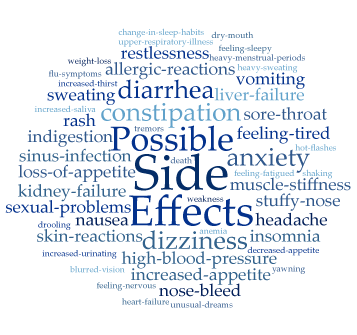Understanding Viagra’s Safety and Side Effects
Viagra is a widely used and generally safe medication for treating erectile dysfunction. However, like all medications, it comes with potential side effects and risks. In this guide, we’ll explore the possible side effects, how to minimize them, and how Viagra interacts with other drugs to ensure safe and effective use.
Possible Side Effects of Viagra
Short-term and Long-term Effects:
Viagra can cause a range of side effects, varying from mild to more severe. Understanding these can help you be better prepared and make informed decisions.
Common Short-term Side Effects:
Some users may experience mild side effects when taking Viagra. These usually occur within the first few hours of use and may include:
- Headaches: A common side effect due to increased blood flow.
- Flushing: Redness or warmth in the face, neck, or chest.
- Indigestion: Upset stomach or acid reflux.
- Nasal Congestion: Stuffy or runny nose.
- Dizziness: Light-headedness or fainting, especially when getting up quickly.
Less Common but Serious Side Effects:
Though rare, some side effects can be serious and require immediate medical attention:
- Sudden Vision Loss: In one or both eyes, a condition known as non-arteritic anterior ischemic optic neuropathy (NAION).
- Hearing Loss: Sudden decrease or loss of hearing.
- Priapism: An erection lasting more than 4 hours, which can cause permanent damage if not treated.
- Chest Pain: Severe pain that may indicate heart issues.
Tip: If you experience any severe side effects, seek medical attention immediately. Always follow the prescribed dosage and guidelines provided by your doctor to minimize risks.
How to Minimize Risks When Using Viagra
To reduce the likelihood of experiencing side effects, consider these practical tips:
- Follow the Prescription: Take Viagra exactly as prescribed by your healthcare provider. Do not exceed the recommended dosage.
- Start with a Lower Dose: If you’re new to Viagra, starting with a lower dose can help your body adjust and reduce the risk of side effects.
- Avoid Alcohol: Drinking alcohol can increase the chances of experiencing side effects like dizziness and headaches.
- Monitor Your Health: Keep track of how your body responds to Viagra and report any unusual symptoms to your doctor.
- Stay Hydrated: Drinking plenty of water can help reduce the occurrence of headaches and dizziness.
Tip: Regular check-ups with your healthcare provider can help monitor your health and ensure that Viagra remains safe for you to use.
Interactions with Other Medications
Viagra can interact with various medications, which can either reduce its effectiveness or increase the risk of adverse effects. It’s crucial to understand these interactions to use Viagra safely.
Which Medications Should Not Be Combined with Viagra?
Certain medications can have dangerous interactions with Viagra. Here are some key ones to be aware of:
- Nitrates: Commonly used for chest pain (angina), nitrates can cause a dangerous drop in blood pressure when combined with Viagra. Examples include nitroglycerin and isosorbide dinitrate.
- Alpha-blockers: Used to treat high blood pressure and prostate conditions, these can also lower blood pressure significantly when taken with Viagra. Medications in this category include doxazosin and tamsulosin.
- Protease Inhibitors: Often used for HIV treatment, these can increase Viagra levels in the blood, leading to increased side effects. Examples are ritonavir and saquinavir.
- Certain Antibiotics: Such as erythromycin and clarithromycin, can also affect how Viagra is metabolized in the body.
- Antifungals: Drugs like ketoconazole and itraconazole can interact with Viagra, altering its effectiveness and increasing side effects.
Tip: Always inform your doctor about any medications you are currently taking, including over-the-counter drugs and supplements.
How to Check Drug Compatibility
Ensuring that Viagra is safe to use with other medications is vital. Here’s how you can check for potential drug interactions:
1. Consult Your Healthcare Provider: Discuss your complete medication list with your doctor. They can identify potential interactions and adjust your treatment plan as necessary.
2. Use Online Tools: There are several reputable online drug interaction checkers where you can input your medications and see if there are any known issues.
3. Pharmacist Advice: Pharmacists are knowledgeable about drug interactions and can provide valuable insights when picking up your prescription.
Tip: Never stop or start any medication without consulting your healthcare provider, especially when using Viagra.
Understanding the safety aspects and potential side effects of Viagra is crucial for safe and effective use. By following the prescribed guidelines, being aware of possible drug interactions, and consulting healthcare professionals, you can minimize risks and enjoy the benefits of Viagra safely. Always prioritize your health by seeking professional advice and making informed decisions about your medication.
Note: This guide provides essential information on Viagra’s side effects and safe usage. Always consult with a healthcare professional to ensure that Viagra is appropriate for your condition and to receive personalized advice on its use.
